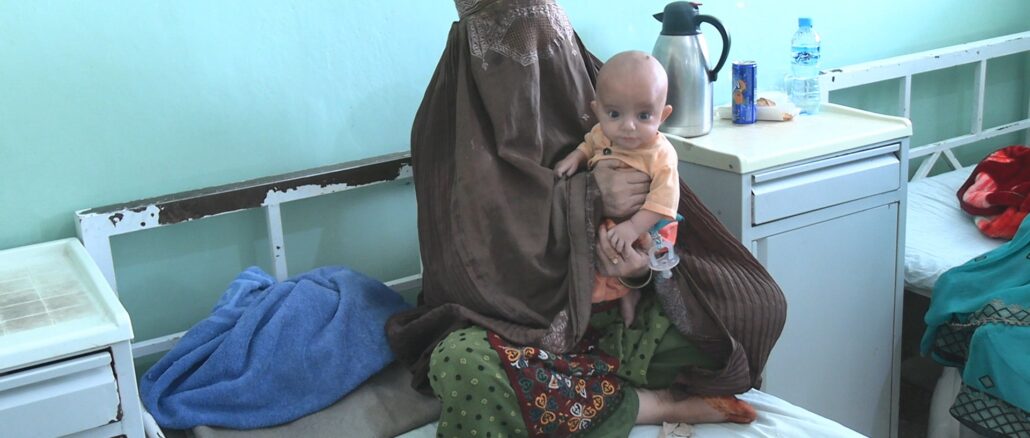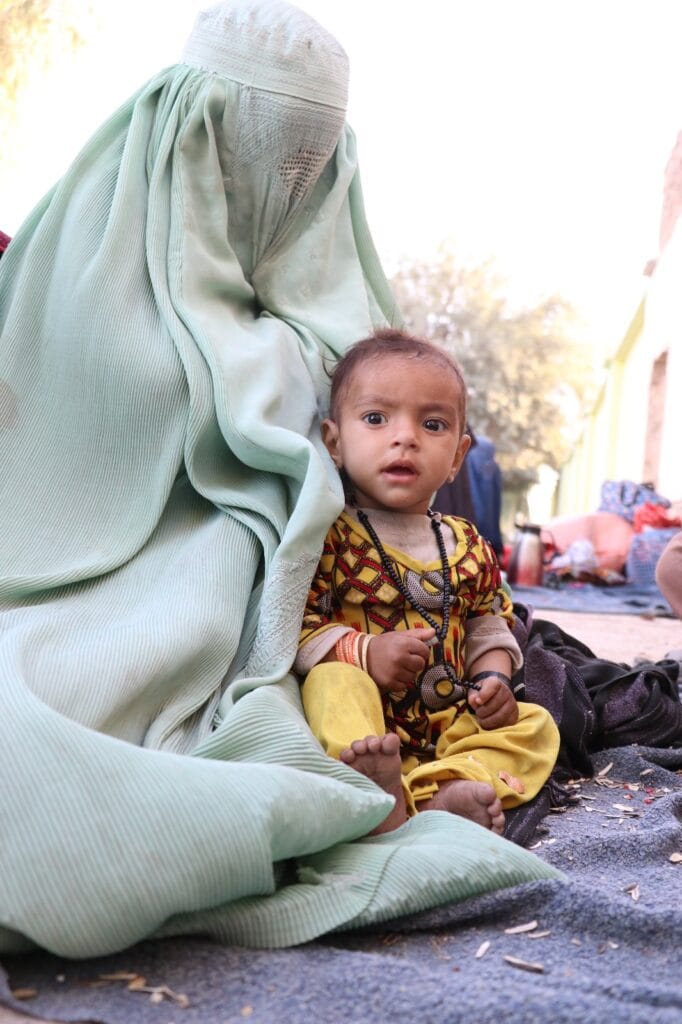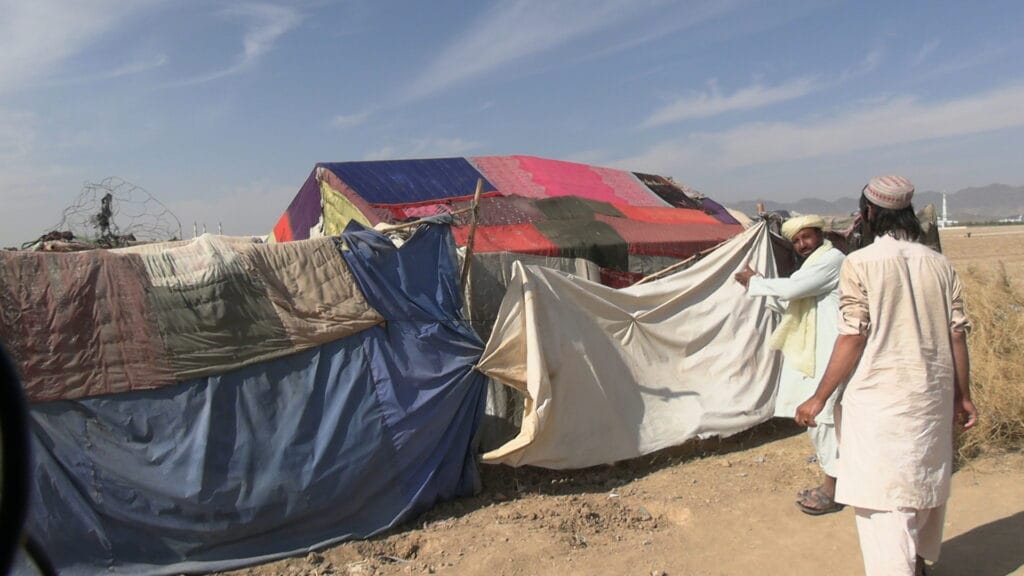
The U.S. government’s suspension of all foreign aid, following an executive order by President Donald Trump, has triggered a significant economic impact in Afghanistan, worsening the country’s already fragile humanitarian situation. The Afghan currency (AFN) has sharply declined against the U.S. dollar, and the cost of essential food items has soared, deepening fears among Afghans struggling with economic hardship.
Currency Depreciation and Market Impact
According to Kabul’s Shahzada currency market, the Afghani’s value fell 5 AFN against the U.S. dollar over two days. On January 24, the dollar traded at 75 AFN, but by January 25, the rate had climbed to 80 AFN. This rapid devaluation has had immediate consequences for the price of essential goods.
A Kabul resident explained, “Since the news of the U.S. aid suspension surfaced, the prices of basic food items have gone up. People already struggling financially are even more worried now.” For instance, the cost of a 50-kilogram bag of flour has risen from 1,500 AFN to over 1,800 AFN in just a few days.
U.S. Directive and Its Implications
On January 24, the U.S. State Department issued a directive to its diplomatic missions worldwide, instructing them to immediately halt all foreign aid programs. The letter emphasized that no new foreign assistance agreements will be signed until the Secretary of State reviews the situation. This directive is part of an executive order by President Donald Trump, pausing all U.S. foreign assistance for 90 days.
The suspension threatens billions of dollars in U.S.-funded projects globally, including health, education, anti-corruption, and security initiatives. The United States, the world’s largest provider of foreign aid, allocated approximately $60 billion to aid in 2023, representing about 1% of its federal budget.
Since 2021, the U.S. has provided more than $2 billion in humanitarian assistance to Afghanistan, primarily through the U.S. Agency for International Development (USAID), making it its largest donor.
Humanitarian Crisis Deepens
Afghanistan’s humanitarian crisis has already been described as one of the worst in the world. The International Federation of Red Cross and Red Crescent Societies has reported severe food insecurity, widespread malnutrition, and insufficient healthcare in many parts of the country.
Alexander Matheou, the Federation’s Asia-Pacific Director, highlighted the dire situation in a video message, stating, “Women are facing anemia, infants are suffering from malnutrition, and families are searching for food, medicine, and blankets during the harsh winter. Emergency humanitarian aid alone cannot address this ongoing crisis”.
The United Nations estimates that 23 million Afghans, or over half the population, need humanitarian assistance. The Office for the Coordination of Humanitarian Affairs (OCHA) has projected that by 2025, 22.9 million Afghans will require urgent aid.

Taliban’s Response and the Role of NGOs
The Taliban-led Afghan government has downplayed the economic impact of the aid suspension. The Afghan Central Bank, now under Taliban control, issued a statement describing the currency’s decline as a “natural fluctuation” and claimed efforts are underway to stabilize the Afghani.
The Taliban asserts that they do not directly receive U.S. assistance, as aid is managed through international organizations. However, they criticized the U.S. decision, with some officials urging President Trump to “move past the Biden era.”
Despite these claims, aid organizations are deeply concerned. Jan Egeland, Secretary General of the Norwegian Refugee Council, warned that the decision would exacerbate Afghanistan’s crisis. “This announcement has shocked aid organizations. We now have to prepare for reduced support from the largest donor to Afghanistan,” he said.
Uncertainty Over Humanitarian Aid
Whether the U.S. directive includes humanitarian aid delivered through NGOs and UN agencies remains unclear. Since the Taliban’s return to power in 2021, many international donors have scaled back assistance due to concerns over human rights violations, particularly restrictions on women’s education, work, and public participation.
Meanwhile, the suspension may also affect weekly cash shipments of $40–60 million to Afghanistan, intended to support humanitarian operations. Aid groups fear that even temporary interruptions could lead to catastrophic consequences for millions of Afghans.

The suspension of U.S. foreign aid comes at a critical time for Afghanistan, where economic instability and humanitarian needs are escalating. With winter intensifying and millions of Afghans at risk, the decision underscores the delicate balance between international concerns over Taliban policies and the urgent need for life-saving aid.
The global community must now decide how to support Afghanistan’s vulnerable population without enabling policies that undermine human rights, particularly for women and girls. The weeks ahead will be crucial in determining how these challenges are addressed and whether Afghanistan’s humanitarian crisis can be mitigated amidst the suspension of critical foreign aid.
Severe Weather Alert: Afghanistan Braces for Heavy Rain, Snow, and Storms


1 Trackback / Pingback